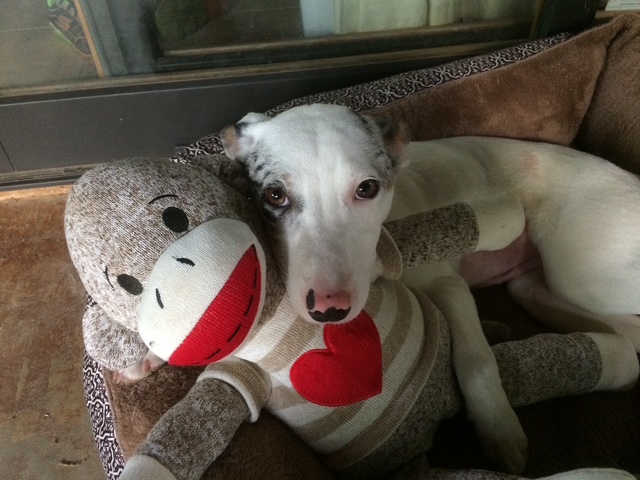How can you tell when your dog is sick?
Keeping your dog healthy and happy is a top priority for every pet owner, but you need to be able to detect illness in your dog early before it becomes a serious issue.
Observing subtle changes in their behavior and physical condition can help you spot potential health problems.
This guide will teach you what signs to look for and how to act swiftly when something seems off.
*Disclaimer: This Post May Contain Affiliate Links. This Means That I Receive A Small Commission At No Extra Cost To You Should You Click Through And Make A Purchase. Learn More On My Policy Page
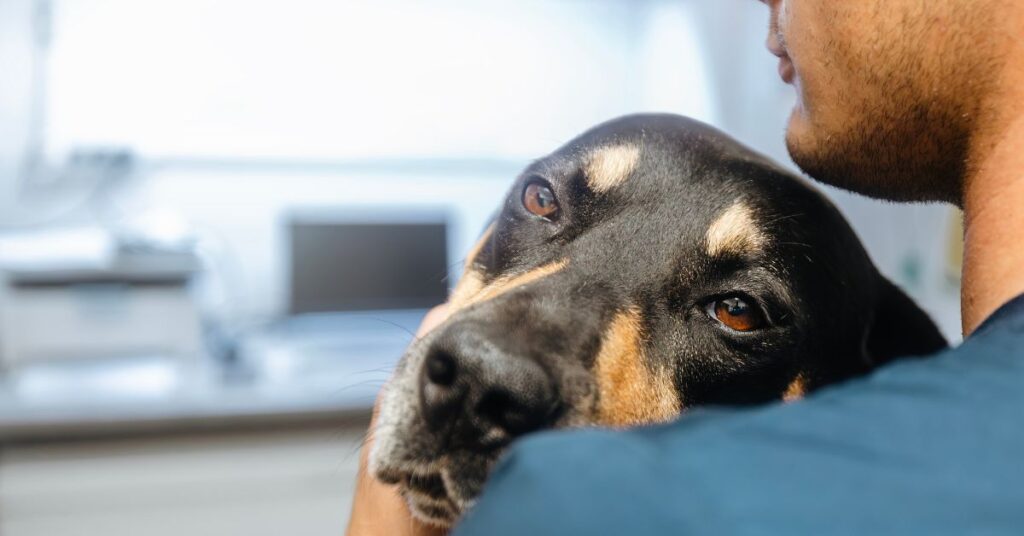
What Are the Early Signs of Illness in Dogs?
It’s important to regularly monitor your dog for signs of illness.
These signs may not be obvious at first, but small changes can indicate that something is wrong.
- Decreased Appetite: A loss of interest in food could be a red flag.
- Lethargy: If your dog is suddenly less active than usual, it could be a sign of fatigue or illness.
- Excessive Thirst: Drinking more water than normal can signal kidney problems or diabetes.
- Changes in Bathroom Habits: Pay attention to irregular bowel movements, constipation, or diarrhea.
- Unexplained weight loss or gain can also point to an underlying condition.
If you notice any of these signs, it’s time to consult your vet.

Why Should You Monitor Your Dog’s Skin and Coat?
Your dog’s skin and coat are indicators of their overall health.
Healthy dogs typically have a shiny, thick coat and smooth skin.
Watch out for:
- Rashes
- Hair loss
- Redness or irritation
These symptoms could point to issues like allergies, parasites, or skin infections.
Regular grooming and inspection can help you catch any issues before they worsen.

What Are the Respiratory Symptoms to Watch For when your dog is sick?
Just like humans, dogs can develop respiratory issues.
Persistent coughing, sneezing, or difficulty breathing could be signs of a serious problem.
Respiratory symptoms to monitor include:
- Chronic cough
- Labored breathing
- Nasal discharge
If your dog seems to be struggling to breathe, it’s essential to seek veterinary care immediately, as this could indicate anything from kennel cough to heart disease.
How Can You Check Your Dog’s Temperature when you think your dog is sick?
A fever is one of the clearest indicators that your dog is fighting an illness.
Having a dog-specific thermometer at home is a great idea.
- Normal temperature: 101 to 102.5 degrees Fahrenheit.
If your dog’s temperature is outside of this range, it may be time for a vet visit.
Modern ear thermometers designed for dogs make this process quick and painless.

Why Is a Dog First Aid Kit Essential?
In case of an emergency or minor injury, having a well-stocked dog first aid kit is crucial. Items to include are:
- Gauze and bandages
- Antiseptic wipes
- Tweezers
- Scissors
- A digital thermometer
Treating minor wounds immediately can prevent complications.
It is also a good idea to keep activated charcoal in your kit in case your dog ingests something poisonous.
Also keep these numbers in your phone and in your kit, ASPCA 24/7 Poison Control Hotline at 888-426-4435 and the Pet Poison Helpline at 855-764-7661.
Having a first aid kit ensures you’re prepared to handle emergencies until you can reach a vet.
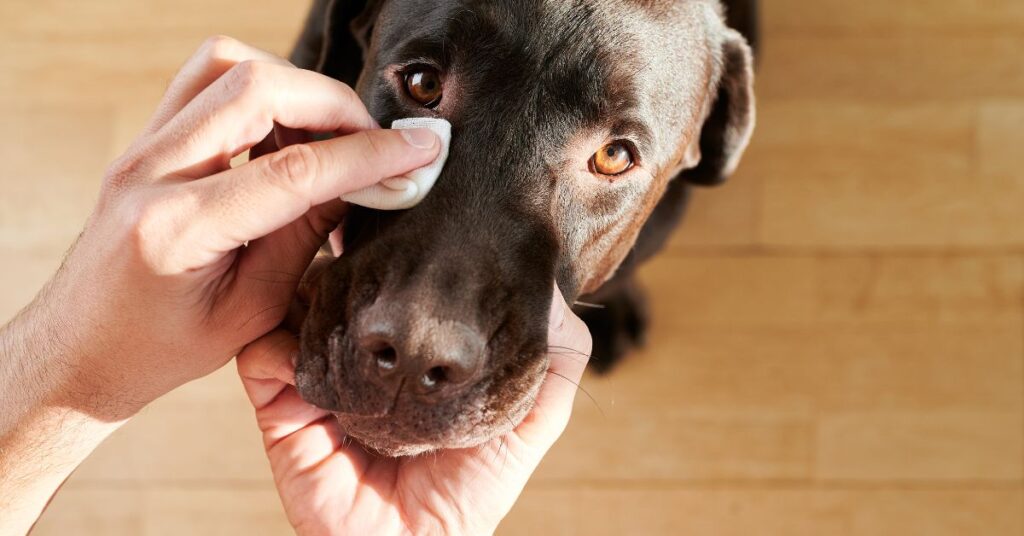
What Should You Look for in Your Dog’s Eyes, Ears, and Nose when you think your dog is sick?
Keeping an eye on your dog’s eyes, ears, and nose can help detect issues early. Look for:
- Discharge from the eyes, ears, or nose
- Swelling around these areas
- Odor or changes in color
These symptoms could point to infections or other health concerns.
Regularly cleaning and inspecting your dog’s eyes, ears, and nose can help maintain their health and spot issues early on.

When Should You Be Concerned About Vomiting or Diarrhea when you think your dog is sick?
Vomiting or diarrhea should never be ignored, especially if it persists for more than a day.
Occasional upset stomachs are normal, but persistent gastrointestinal issues can indicate:
- Infections
- Parasites
- Food intolerances
Warning signs include blood in vomit or stool, frequent episodes, and dehydration.
If your dog exhibits any of these, consult your vet immediately.

How Does Your Dog’s Mood Reflect Their Health when your dog is sick?
Your dog’s behavior is a direct reflection of how they feel.
If you notice sudden mood changes, it could indicate they aren’t feeling well.
- Sudden aggression or irritability
- Increased anxiety or restlessness
- Depression or withdrawal
These behavioral changes, along with physical symptoms, may be a clue that something is wrong.
Don’t hesitate to trust your instincts and reach out to your vet if your dog’s mood changes significantly.
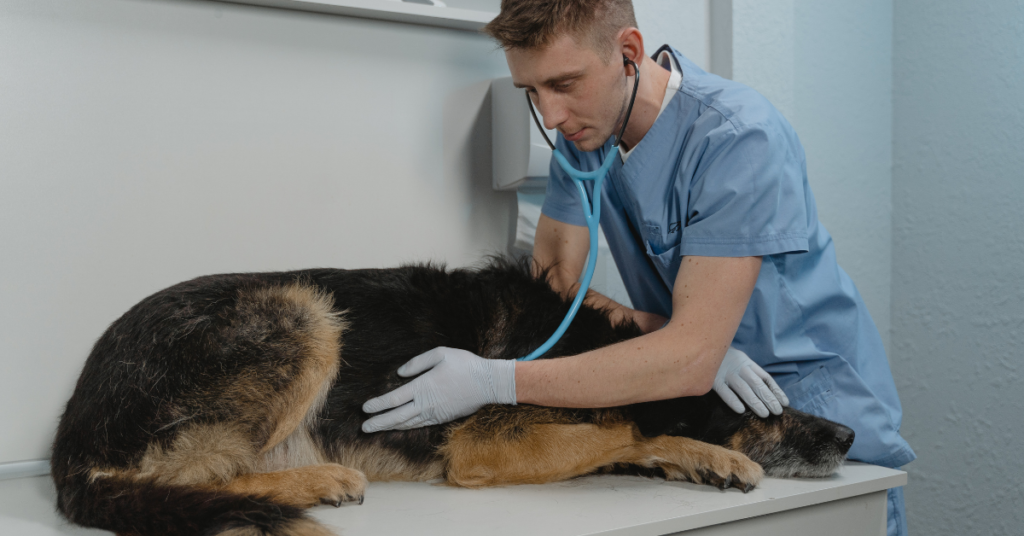
Why Are Regular Vet Checkups Important?
While monitoring your dog at home is important, regular veterinary checkups are essential for maintaining their health.
During these visits, your vet can perform routine blood tests, dental exams, and physical assessments to catch any hidden issues.
For more articles on specific illnesses check out our Health & Wellness Page.
How Can Early Detection Improve Your Dog’s Health?
The sooner you detect a health issue, the better your dog’s chances of recovery.
Many conditions, like infections, digestive problems, and even some cancers, are treatable if caught early.
By paying close attention to your dog’s behavior and physical health, you can act quickly, providing them with the care they need for a speedy recovery.
What Should I Do If I Notice Something Unusual?
If you ever notice unusual behavior, symptoms, or anything that seems off with your dog, it’s always a good idea to consult your vet.
Trust your instincts—no concern is too small when it comes to your dog’s health.
Your vet can provide professional advice, diagnose any issues, and recommend the best course of action.
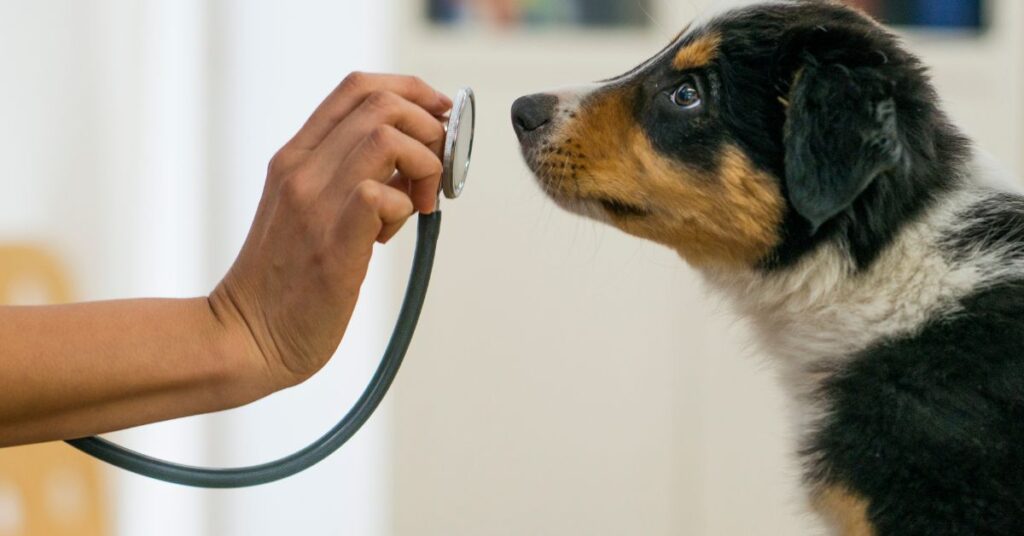
Consult Your Veterinarian if You Notice Symptoms and you think your dog is sick.
Early detection of illness can make a huge difference in your dog’s health.
Always monitor for changes in behavior, appearance, or activity level, and seek professional advice if anything seems wrong.
Take action now: If you suspect your dog is showing signs of illness, don’t wait.
Consult your veterinarian for a thorough examination and treatment plan.
For more information on dog health and wellness, visit the AKC Canine Health Foundation.









